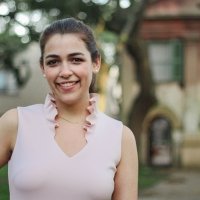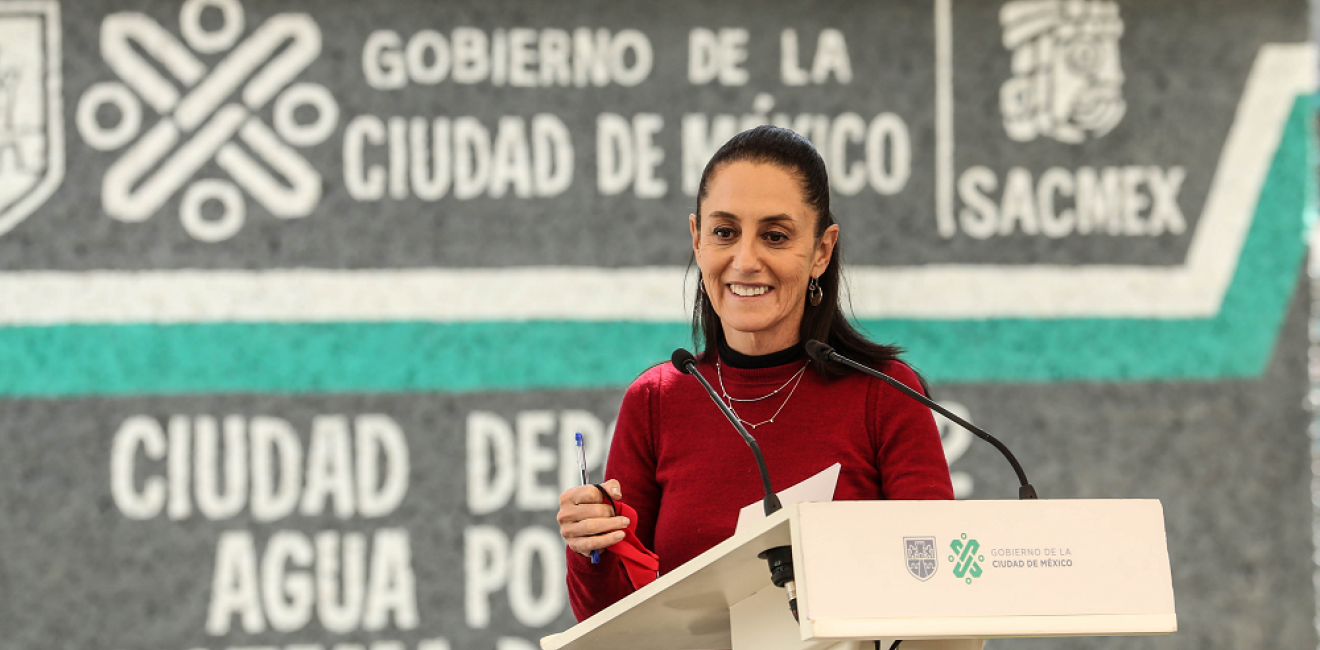Claudia Sheinbaum Pardo is the Sigamos Haciendo Historia (Let's Continue Making History) coalition candidate for the presidency of Mexico. She is a Mexican politician and environmental engineer who served as mayor of Mexico City from 2018 until 2023, the first woman and Jewish person to hold the role. Sheinbaum is the granddaughter of Jewish immigrants from Eastern Europe and the child of two scientists who participated in the 1968 student movements in Mexico City.
She studied at Universidad Nacional Autónoma de México (UNAM), receiving a Bachelor’s degree in physics, a Masters in energy engineering, and a doctorate in environmental engineering. Her dissertation focused on energy consumption trends in Mexico and she conducted doctoral research at the University of California's Berkeley Lab. She returned to her alma mater in 1995, working as a faculty member of engineering. Throughout her time at UNAM, both as a student and as a professor, Sheinbaum remained active in politics, helping found the student-led Revolutionary Democratic Party in 1998.
Sheinbaum first entered politics in 2000, serving as Secretary of the Environment for Mexico City, under Andrés Manuel López Obrador’s (AMLO) administration as the mayor of Mexico City. Significant accomplishments during her tenure include the creation of the first line of the metrobús, Mexico City’s bus rapid transit system, and the construction of the second level of Mexico City’s periférico, the city’s outer beltway. Sheinbaum left the role in 2006 to join AMLO’s presidential campaign team and participated in AMLO’s gobierno legítimo (legitimate government), as the secretary of national patrimony.
Two years later, Sheinbaum played a key role in coordinating Movimiento en Defensa del Petróleo (Oil Defense Movement), a movement in opposition to former president Felipe Calderón’s attempt to privatize Pemex (Petróleos Mexicanos). Following AMLO’s presidential election loss in 2006, Sheinbaum returned to her academic career, teaching classes at UNAM and conducting research on engineering challenges in Mexico City, specifically on water and mobility. During this time, she served as a member of the United Nations Intergovernmental Panel on Climate Change (IPCC). The panel, alongside Al Gore, received the Nobel Peace Prize in 2007.
In 2014, Sheinbaum officially resigned from the Partido de la Revolución Democrática, also known as PRD (Democratic Revolutionary Party), and joined AMLO’s newly created political party, Morena, formally known as Movimiento Regeneración Nacional (National Regeneration Movement). From 2015 until 2017, she served as the mayor of Tlalpan, Mexico City’s largest borough, during which she faced staunch criticism for the collapse of a school, Colegio Rebsamen, which resulted in the deaths of 26 people, including 19 minors, following the September 19th, 2017 earthquake. Critics argue that poor infrastructure, fueled by corruption and insufficient permitting, of apartments on top of the elementary school substantially weakened the building’s structure, ultimately causing its collapse. In 2018, Claudia was one of seven candidates to run for the position of mayor of Mexico City and won approximately 50% of the vote. She is the first woman to be elected to the role of mayor - though not the first woman to hold the position.
Sheinbaum has stated that her academic and professional background shaped her approach to politics and that it is substantially different from other politicians. According to Sheinbaum, her training in physics motivates her to seek out the “root causes” of issues and her engineering training provides the perfect complement, pushing her to look for and understand “the how” of problems - both of which are fundamental to her work in politics. More broadly, her mayoral campaign platform prioritized addressing inequality in terms of access and services, particularly in terms of public transportation and Mexico’s increasingly severe and pervasive water challenges.
Sheinbaum’s campaign put forth proposals such as further investments in water recycling and treatment plants, finding and developing water sources outside of Mexico City, and subsidizing rainwater collection. In terms of mobility, Sheinbaum sought to increase funding and investments in formal public transportation (such as bus lines, trains, and cable cars), while also reducing informal transportation systems and enforcing stricter environmental standards for cars.
Sheinbaum’s tenure as mayor of Mexico City was marked by difficult circumstances, namely addressing the COVID-19 pandemic, as well as insecurity challenges, gender-based violence, and high inflation. The collapse of Line 12 of Mexico City’s metro, which resulted in the death of 26 people and injured 98 others, will be part of Sheinbaum’s legacy. Her management of the COVID-19 pandemic in Mexico City won positive recognition. In fact, her administration’s response to vaccinations was replicated in other parts of the country given Mexico City’s success, such as online registration vaccinations to speed up the process and avoid gathering of large crowds.
Beyond the tangible accomplishments of Sheinbaum’s time in office, but perhaps even more important, was her ability to maintain a close relationship with AMLO and Morena, while staying true to her scientific and empirical roots. While Sheinbaum’s political future remained unclear in the months leading up to the election, she was seen as a forerunner for Morena, with some even going so far as to say that her candidacy was foreshadowed by comments made by AMLO in September 2021. Throughout the summer, Sheinbaum toured the country, eventually winning five national polls and beating the five other Morena hopefuls. Morena named Sheinbaum its candidate on September 6th, 2023.
Author


Mexico Institute
The Mexico Institute seeks to improve understanding, communication, and cooperation between Mexico and the United States by promoting original research, encouraging public discussion, and proposing policy options for enhancing the bilateral relationship. A binational Advisory Board, chaired by Luis Téllez and Earl Anthony Wayne, oversees the work of the Mexico Institute. Read more

Explore More
Browse Insights & Analysis
Greenland’s New Governing Coalition Signals Consensus

The Future of France's Far-Right Party

Ukrainian Issue in Polish Elections

